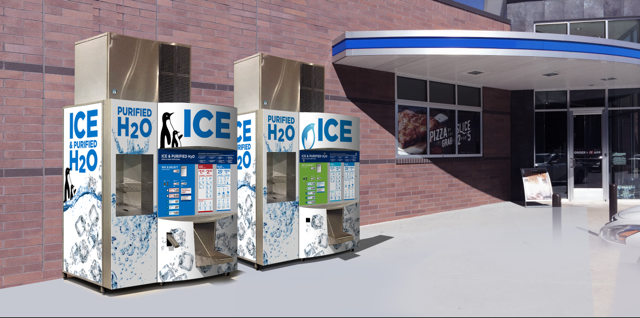Posted on: August 9, 2022 | Investing
It’s never too late or too early to start your own business. If you know you have a hard-working, entrepreneurial spirit, but you’re not sure how to decide what business to start, this quiz can help. This quiz will help you not only inventory your skills, but help you decide what business you should start based on your personality, lifestyle, and values.
How to Decide What Business to Start: Take the Quiz
1. What Are Your Skills?
Your skills are one of the most important things to help you decide what business to start. Your skills are valuable business assets that you can invest into your business without actually spending money. By honing your skills and choosing a business that works with your skillset, you can build value in your business without spending money!
If you feel like you don’t have business skills or the hard skills you need to make a valuable business, don’t worry. You may have more skills than you think, and many businesses require hard work more than specific skills.
Take a look at the list below and write down which skills you may have. If you’re wondering how to start a business without skills, consider which skills you’d like to learn. Passion and curiosity can help you build a valuable business too.
Of course, this list isn’t exhaustive. As you look through this list, you might think of other skills you have that aren’t on the list. Write them down! Also, this is just a starting point. This skills inventory combined with the rest of the quiz will help you decide what business to start.
- Computers: If you have a high level of computer literacy and you enjoy working with computer programs, your business future might lay in web design, programming, SEO, security, typing, or social media management.
- Trades: If you have experience as an electrician, plumbing, construction, welding, or other trades, you have a business-in-the-making.
- Food: There are many ways to work with food. You might start a restaurant or a food truck. Or, you might cook meals for others in their home or yours, or build healthy meals plans as a nutritionist.
- Crafts: Creativity and artistic flair may help you start a business as an independent artist, gallery owner, jewelry crafter, clothing designer, and more.
- Healthcare: You can start your own business in healthcare by starting your own doctor’s or therapist’s office, working in home healthcare or elderly care, fitness instruction, and more.
- Hospitality: If you are friendly, extroverted, and enjoy talking with others, you might have a future as the owner of a spa, nail salon, hair salon, BnB, or massage clinic.
- Organization and dedication: If you’re passionate about starting a business and working for yourself, and you have the organizational skills to manage your time effectively, your business might be in vending, house cleaning, working as a personal assistant, online sales, or managing a rental property.
Wondering about starting a vending business?
Learn more about recession-proof ice and water vending >
2. What Is Your Personality?
As you were considering your skills and the businesses you might start with your skills, you may have noticed a few business ideas that excited you and a few that turned you off. When you enjoy your business, it will be easier to make it successful. Part of enjoying your business is finding a business model that compliments your personality.
Though there are many aspects of your personality that will affect your business, the most impactful may be the way that you work with people. Do you enjoy meeting new people, talking with them, and helping them have a good experience? Or, do you prefer a bit more distance on interpersonal interactions, such as email, phone calls, or social media?
- Extroverted: If you enjoy working with customers, a traditional brick and mortar business might be ideal for you. Or, you might start a business from your home or meet customers at their home.
- Introverted: If you work better alone, an online-based business may be ideal for you. You might provide consulting services, sell products online, or provide instructional booklets or classes. Or, you might start a business with minimal customer interaction, like vending or land rentals.
3. What Are Your Values?
When your work aligns with your values, you’re not only more likely to enjoy your work, but you’re also more likely to keep going and overcome obstacles. Consider what makes you feel alive as a person, what role you want to play in society, or what impact you’d like to have on the future.
- Helping others: Your business might include an educational element, charitable endeavor, or community building aspect. This might be offering services on a sliding scale based on income, introducing your skills to others, or partnering with charitable organizations in your community.
- Providing for self or family: This might mean prioritizing income, and choosing a business that’s likely to be most profitable, so you can provide the most comfortable life for yourself and your family.
- Helping the Environment: This might mean using eco-friendly materials, revolutionizing a eco-costly process or product, organizing a regular community clean-up, using carbon offset in your business, or making general efforts to make your business eco-friendly.
- Artistic expression: If art and creativity inspire you, and you want to inspire others too, consider how you might break the mold with your building, website, or products. Or, consider how you can partner with artistic community projects to advance artistic expression.
Ice House America and Twice the Ice help businesses reduce their carbon footprint, and we step in when disasters strike.
See how we apply our values to our business >
4. How Much Investment Do You Have?
If you’ve saved money or you’re leveraging other assets to finance your business, you may have a lot to invest in your new business. But, if you’re trying to decide what business to start and you don’t have much investment now, you may have to start smaller and build up. There are many ways to do this, and you can scale your business as you grow.
- Small: If you have a relatively small amount of capital available, starting a business from your home may be ideal. Or, you might lease a small space, or share a space with a friend or business partner. You’ll want to prioritize the equipment or other assets you absolutely need to run your business. Consider how you might start acquiring your first customers and building a loyal following.
- Medium: With a moderate amount of capital, you might rent a small space for your brick and mortar business, buy or lease new equipment, get a professional website, and/or start small scale advertising. You may be able to hire an employee to help.
- Large: With a larger investment, you can jump right in and invest in the equipment, space, staff and technology you need. You might hire several employees to help you hit the ground running fast, or invest in more equipment. With a large investment, you’ll want to make a business plan, and calculate ROI on spending decisions.
When your business compliments your skills, personality, values, and assets, you’ll be much more likely to love your business, and willing to invest your time and energy into it. Once you decide what business to start, plan out your next steps, talk to someone in your community who has experience in the industry, or research competitors. With planning and consideration, you can build a business that you’re proud of for years to come.
Invest in Your Retirement
Earn residual income from an investment in an ice & water vending machine.
DOWNLOAD THE FREE GUIDE RIGHT NOW.
Get the Guide »


